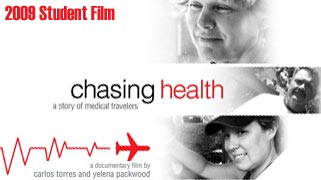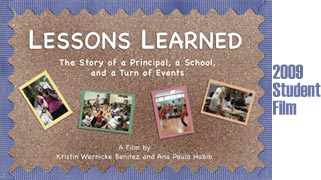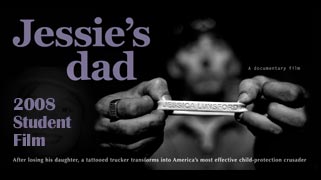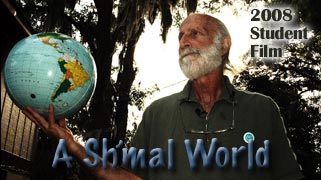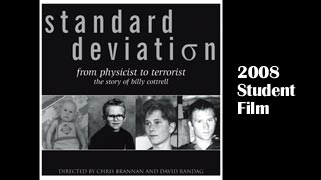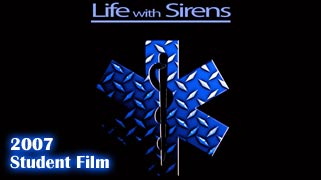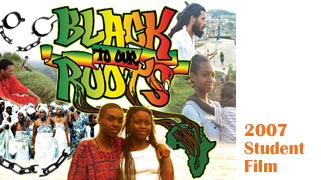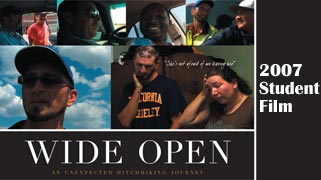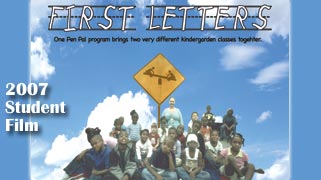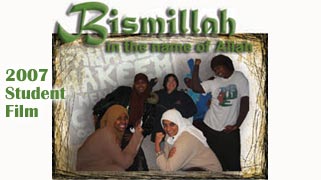Featured Alum: John Aldrich

DI Class: 2000
Thesis Film: American Stalag
Current Job: National Geographic
A member of the Institute’s first graduating class, John currently works for National Geographic Society as a writer, producer, photographer and editor for the JASON Project. The JASON Project engages students in inquiry-based investigations by taking them on scientific expeditions. He is also working with 2001 Institute graduate Jason Osder on Fire with Fire, a documentary that explores the 1975 conflict between the city of Philadelphia and a radical collective known as MOVE. John currently lives in Virginia with his wife Soo and his son Mason.
John recently talked to Institute student Jenna Carlson about his experiences in the program.
Q: What was the most surprising lesson you learned during your time in the program?
I think the biggest surprise to me was that I could do well academically – I’d always been about a B or B+ student, but suddenly I was taking courses in only those things that I was interested in and was motivated to learn about, and I did well academically. I think it also surprised me the amount of information that was being offered – I learned so much in those two years that looking back on it, it doesn’t seem humanly possible.
Q:What was the most surprising lesson you learned after graduation?
I think the most valuable thing I learned after the program was the serious, serious work ethic that got instilled in the DI. I worked my ass off in graduate school, and that is something that has carried through to every aspect of my life, frankly, and it’s something that I think has helped me the most in my career – I’ve never been accused of slacking or missing a deadline, which is a point of pride.
Q: A common concern for documentary students is how to get their first job. Would you mind sharing your experience in this regard?
I got lucky in that I got a job doing freelance work in Washington, a city I knew somewhat and was comfortable in, and had a good base for the industry, so I felt comfortable moving here. I’d say that after New York, D.C. probably has the best base for documentary filmmaking in the U.S. Los Angeles obviously has a ton of production going on, but it’s not exactly my cup of tea I suppose. So I freelanced for a while, which I was sort of comfortable with – I’d been freelancing for four years before I entered the DI program, so it was natural to go back to it. I made contacts, and actually got lucky getting into Nat Geo – I was working at the US Postal Service doing production and post, and answered an internet posting for a job here, interviewed, and the hiring producer said he’d gotten eighty resumes within three hours of the posting and I was far and away the most qualified, and I credit my education from the DI for much of that. I worked here for a year as a contractor and have been on the staff for two years and counting.
Q: How important is it to intern after the first year in the program?
I think it’s incredibly important. If you don’t go out and get a sense of what the job market is like and how production companies or media companies work, you’re doing yourself a disservice, even if you don’t want to work for one of them. They are either the people who are going to be hiring you or they are going to be your competition as content providers. Understanding what they do well and what they fail at is an education unto itself. As an intern you may get the undesirable jobs, you don’t always get to do the glamorous stuff, but you do make contacts that may or may not be valuable. At the very least, you’ll have some war stories.
Q: What would be your best general advice for aspiring filmmakers?
I think that maintaining control of your product (isn’t that an ugly word!) is extremely important, and maintaining control of your vision is obviously how your voice gets heard. That being said – get your film shown wherever you possibly can. Your voice can be as eloquent and magnificent as Ella Fitgerald, Kiri Te Kawana and Marvin Gaye combined, but if nobody hears it, it’s the proverbial tree falling in the forest with only mice and the owls that eat them to hear it.
Q: How is the project Fire with Fire going?
I think Jason’s probably better able to give an answer on that score, but basically, we remained deadlocked on production because of a few issues. One is the refusal of television stations in Philadelphia to even discuss licensing footage to us for the film. The other is our own vacillation, and I think that’s probably our biggest problem. We’re both very busy with our ‘day jobs’, me with work and family and Jason getting his business off the ground and stable, which he’s doing a fantastic job with, and it keeps up from moving forward as much as we’d like. I’m probably going to busy myself with a shorter, more intimiate project just to keep my skills up and because it’s something I want to do, but the same thing can be said for Fire with Fire. It’s something we both want to do, but have some obstacles that are preventing us from moving forward. It’d be a lot easier if either of us were trust fund babies, so if any wealthy dowager/gadabout/spinster needs an adopted child, we are available and quite willing. And don’t ask how far we’ll go. It’s not pretty. I mean, I’m married and all, but Jason’s single… and lacking in scruples…Just kidding. He’s very scrupulous. Swimming in them, practically.

